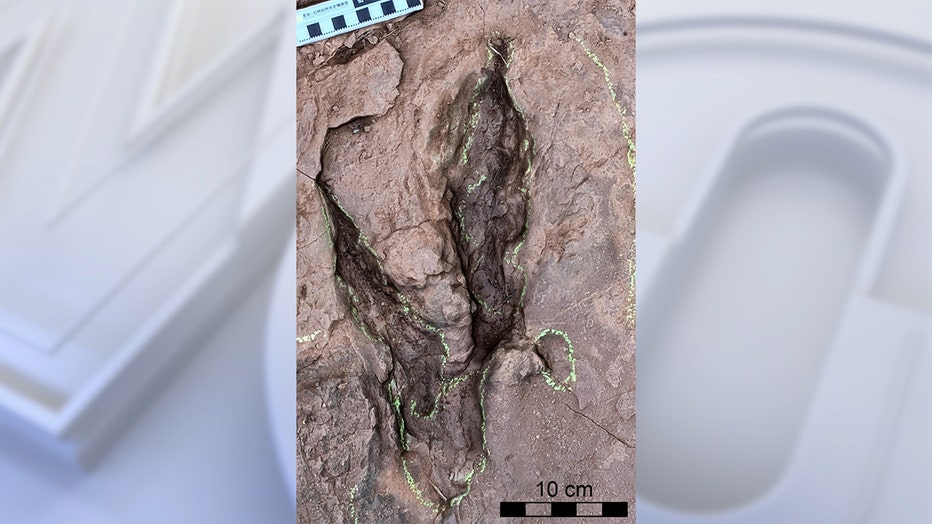‘Largest raptor footprints ever’ discovered in China
LEFT: Life reconstruction of the giant troodontid. RIGHT: Image of the track discovered. (Credit: Dr. Scott Persons)
CHINA - Not all dinosaurs are known from bones; some mysterious species are identified only from their footprints.
A research team has identified a series of five raptor footprints from approximately 90 million years ago.
The big raptor tracks were discovered while the team was working on a large track site. Using a technique called photogrammetry, which takes photographs made from slightly different angles and then builds 3D digital models of each track, the researchers could analyze each footprint with computer software.
"You know a raptor track when you see it," Lida Xing, a Chinese paleontologist who spearheaded the project, said in a release. "But these tracks are different from any that have ever been found."
According to the researchers, one of the main differences was the size of the footprints. In real life, the Velociraptor was a dinosaur the size of a Labrador Retriever, and most raptors were similar in size or even smaller.

The footprints were discovered in southeastern China. (Credit: Dr. Scott Persons)
"When you say ‘raptor,’ everyone thinks of the CGI critters from ‘Jurassic Park.’ But ‘raptor’ is like ‘cat’ – sometimes you’re talking about a housecat, sometimes a cheetah, and sometimes a sabertoothed tiger," Dr. Scott Persons, a professor of paleontology at the College of Charleston and a member of the research team, told FOX Television Stations.
But each of the new Chinese raptor tracks uncovered measured more than 13 inches long, making them the "largest raptor footprints ever found," according to the study, published Wednesday in the journal Science.
"I was flabbergasted by the size of the prints," Persons continued. "I’ve seen raptor tracks before, but they’ve all belonged to turkey-sized animals. The details on many of the prints are also strikingly good. You can see the shape of individual fleshy pads on each toe."
Based on that foot size, the research team estimated the animal to have been around 15 feet long. The new giant raptor has been named Fujianipus, meaning "the foot of Fujian."
RELATED: Paleontologists uncover strange new prehistoric sea monster
They also believe Fujianipus belongs to a special family of raptors known as troodontids, based on the proportions of the toes.
Fossil of tiny dinosaur with bat-like wings discovered in China
The fossil of a small dinosaur with bat-like wings was discovered in China and renderings of what it looked like in the Jurassic era were released by the journal Nature on Thursday.
"That’s exciting, because big troodontids aren’t known from Asia," Persons continued. The only other known large troodontids lived in prehistoric Alaska.
In the future, Persons said other track sites in the area will need to be explored, adding, "Of course, we would also love to find bones from the new raptor."
This story was reported from Los Angeles.

